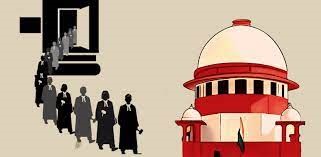Bill Proposes Quota in Judicial Appointments for Diversity
Why in the news?
DMK (Dravida Munnetra Kazhagam) MP P. Wilson introduced the Constitutional (Amendment) Bill, 2024, seeking reservation for SCs, STs, OBCs, women, and minorities in judicial appointments. The Bill also proposes timelines, transparency, and State consultation in the selection process.
Introduction of the Constitutional (Amendment) Bill, 2024:
- DMK MP P. Wilson has introduced the Constitutional (Amendment) Bill, 2024, reigniting discussions on reservation in judicial appointments for the Supreme Court and High Courts.
- The Bill proposes constitutional amendments to ensure due representation for Scheduled Castes (SCs), Scheduled Tribes (STs), Other Backward Classes (OBCs), women, and religious minorities in judicial appointments.
- It also aims to introduce timelines, transparency, and State government participation in the selection process.
Ensuring Social Diversity in Judiciary
- Wilson emphasizes the need for social diversity in judicial appointments to reflect India’s pluralistic society.
- The Bill calls for the framing of a Memorandum of Procedure (MoP) to regulate the process of selecting Supreme Court judges in consultation with the Chief Justice of India (CJI).
- It seeks to define clear timelines and procedures for identifying, assessing, recommending, and appointing
State Consultation in High Court Appointments
- The Bill proposes that the Central Government consult respective State Governments before appointing High Court Chief Justices and judges.
- This aims to make judicial appointments more inclusive, representative, and accountable by involving regional stakeholders in the decision-making process.
Collegium System: Evolution and Key Cases
- Introduction: A mechanism to ensure a democratic appointment and transfer of judges, established through the Second and Third Judges Case rulings.
- No Constitutional Mention: The Collegium System is not defined in any law or the Indian Constitution.
- Composition:
- Supreme Court (SC) Collegium: Chief Justice of India (CJI) + 4 senior-most judges.
- High Court (HC) Collegium: HC Chief Justice + 4 senior-most judges.
Evolution and Key Judgments
- First Judges Case (1981):
- The President is the final authority in judicial appointments.
- Consultation is not concurrence; judges’ recommendations are not binding.
- Second Judges Case (1993):
- Collegium System introduced; gave primacy to the CJI in judicial appointments.
- Judicial independence upheld under Article 50 (Separation of Powers).
- Third Judges Case (1998):
- Expanded the Collegium to CJI + 4 senior-most SC judges.
- Reaffirmed the 1993 ruling with modifications.
- Fourth Judges Case (2015):
- Struck down NJAC (National Judicial Appointments Commission) as unconstitutional.
- Upheld the Collegium System to protect judicial independence.




